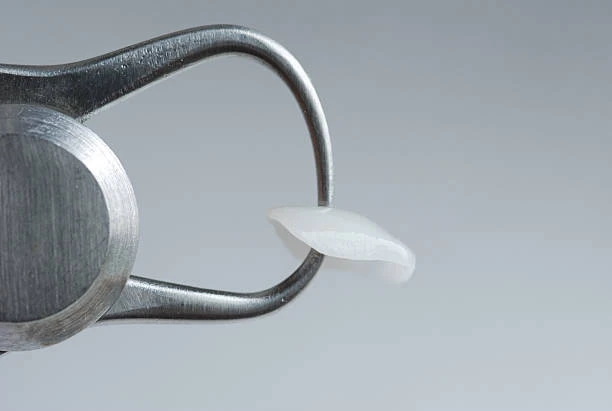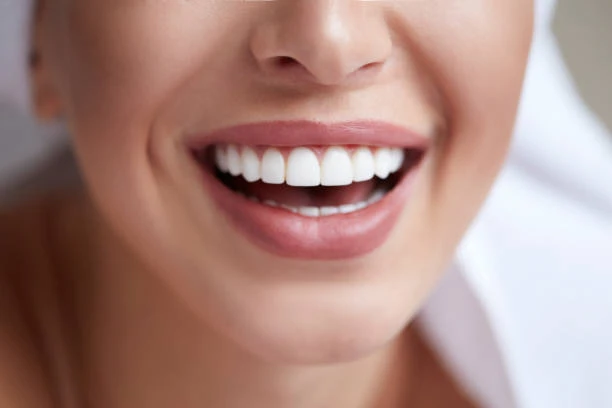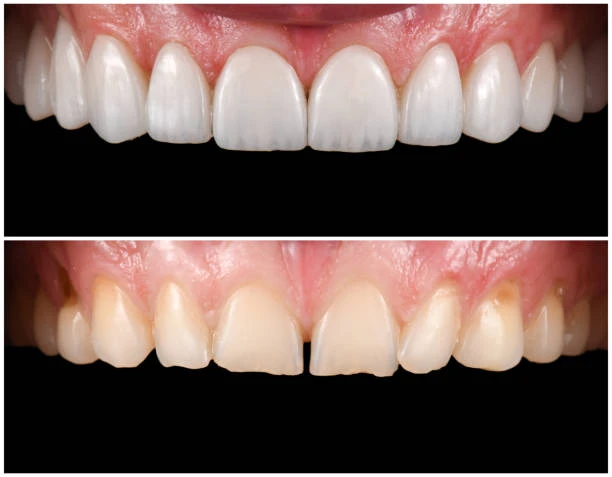Are you looking for a way to enhance your smile? While many cosmetic dental treatments are available, bonding and veneers are two standout options.
But which one best suits your needs? This Supremia Dentistry article will delve into the pros and cons of bonding vs. veneers, helping you make an informed decision. We’ll explore the differences, the benefits of each, and even the factors to consider before choosing.
Ready to discover which treatment aligns with your smile goals? Let’s dive in.
What are Dental Bonding and Veneers?
Both dental bonding and veneers offer solutions for improving the appearance of your teeth, but they do so in different ways. Let’s break down the specifics of each treatment.
Dental Veneers
Veneers are thin, porcelain, or composite shells that are bonded to teeth to improve their aesthetic appeal, including their shape, size, or color.
The goal? To give you a beautiful, natural-looking smile. Dental veneers can also last for years.
Dental Bonding
Bonding is a cosmetic dental technique that uses a composite resin to repair chipped or cracked teeth, close gaps, or modify the shape of teeth. It’s a less invasive alternative to veneers.
Key Similarities and Differences
Similarities
- Cosmetic Goals: Both treatments aim to enhance the appearance of your smile.
- Material: Both bonding and veneers use tooth-colored materials for a natural finish.
- Durability: While both treatments are durable, veneers tend to last longer than bonding.
Differences
Appearance
Bonding is great for minor imperfections, but veneers offer a more refined and polished appearance. Veneers are often used for patients seeking a more transformative result.
Durability
Veneers are more durable, often lasting 10-15 years. Bonding, however, may last 5-7 years, depending on wear and care.
Cost
Dental bonding is generally less expensive than veneers, making it a budget-friendly option for minor cosmetic fixes.
Treatment Time
Bonding is a faster treatment, often completed in one dental visit, while veneers may require multiple visits to achieve the perfect fit and look.
Maintenance
Both treatments require regular oral hygiene, but veneers tend to be more resistant to staining than bonding, which can discolor over time.
Dental Bonding
Let’s look closer at dental bonding—a cost-effective and non-invasive cosmetic option.
What is Dental Bonding?
Bonding involves applying a tooth-colored resin to the tooth’s surface to fix cosmetic imperfections. It’s a quick, straightforward solution for minor dental issues like chips, gaps, and discoloration.
How is Dental Bonding Performed?
Preparation
Bonding requires minimal preparation, meaning no drilling or removing of much of the tooth’s natural enamel. The dentist will lightly etch the tooth’s surface to help the bonding material adhere.
Application of Bonding Material
The dentist will apply a tooth-colored resin and mold it to the desired shape.
Shaping and Curing
The material is shaped and hardened using a special light, ensuring it bonds securely to the tooth.
Polishing
Once the resin hardens, it’s polished to match the sheen of the rest of your teeth, blending seamlessly with your natural smile.
Advantages of Dental Bonding
Cost-effective
Bonding is one of the most affordable cosmetic dental treatments available, making it an attractive option for patients on a budget.
Less Invasive
Because bonding requires minimal tooth preparation, it’s a less invasive treatment compared to veneers.
Quick Treatment
Bonding can often be completed in just one office visit, making it a time-efficient choice.
Disadvantages of Dental Bonding
Susceptible to Staining
Bonded teeth can stain over time, especially if exposed to coffee, tea, or tobacco.
Less Durable than Veneers
While bonding is durable, it doesn’t last as long as veneers and may need to be touched up or replaced sooner.
May Not Be Suitable for Severe Tooth Damage
For patients with extensive tooth damage, bonding may not provide the necessary strength or longevity.
Dental Veneers
Let’s explore dental veneers—a more permanent and aesthetic solution.
What are Dental Veneers?
Veneers are custom-made shells designed to fit over your teeth. They’re typically made of porcelain or composite material and are used to improve the appearance of chipped, discolored, or misshapen teeth.
Types of Dental Veneers
Composite Veneers
These are made from tooth-colored composite resin and are more affordable than porcelain veneers. However, they may not last as long.
Porcelain Veneers
Porcelain veneers are a preferred option for many patients due to their longevity, stain resistance, and lifelike appearance
How are Dental Veneers Applied?
Preparation
The dentist will remove a small amount of enamel from the surface of your teeth to make room for the veneers.
Veneer Application
The custom-made veneers are carefully placed on your teeth to ensure a perfect fit.
Bonding and Polishing
Once in place, the veneers are bonded to your teeth and polished for a natural, bright finish.
Advantages of Dental Veneers
Natural Appearance
Veneers provide a natural, flawless appearance that can significantly enhance your smile.
Durable
Porcelain veneers are durable and can last up to 15 years or more with proper care.
Stain-resistant
Porcelain veneers are highly resistant to staining, which means your smile stays bright.
Can Improve Tooth Shape and Size
Veneers can reshape and resize your teeth for a more uniform and aesthetically pleasing look.
Disadvantages of Dental Veneers
More Expensive than Bonding
Veneers tend to be more expensive, especially porcelain veneers, which offer superior quality and durability.
More Invasive Treatment
Applying veneers requires the removal of some enamel, making the treatment more invasive than bonding.
Irreversible
Once the enamel is removed, it can’t be restored, making veneers a permanent treatment.
Choosing Between Bonding and Veneers

When deciding between bonding vs. veneers, there are a few key factors to keep in mind.
Factors to Consider
Desired Outcome
Bonding might be the best choice for a subtle, quick fix. Veneers are ideal for a more dramatic transformation.
Budget
Bonding is the more affordable option, while veneers require a higher financial investment.
Tooth Condition
For minor imperfections, bonding works well. For more severe damage or discoloration, veneers may be a better option.
Lifestyle
Consider your daily habits. If you’re an avid coffee or tea drinker, veneers are less likely to stain than bonding.
When to Choose Bonding
Minor Tooth Imperfections
Bonding is perfect for fixing small chips or gaps without an extensive procedure.
Limited Budget
If cost is a concern, bonding offers a more budget-friendly solution.
Desire for a Quick Treatment
Bonding is ideal for those who want fast results without the need for multiple appointments.
When to Choose Veneers
Severe Tooth Damage or Discoloration
For patients with significant cosmetic concerns, veneers offer a more comprehensive solution.
Desire for a Long-lasting Solution
If you want a smile makeover that lasts for years, veneers are the better investment.
Willingness to Invest in a More Expensive Treatment
While more costly, veneers provide a long-lasting, durable solution for improving your smile.
Aftercare and Maintenance
Proper care is essential to maintaining both bonded and veneered teeth.
Caring for Bonded Teeth
Bonded teeth are more susceptible to staining, so regular brushing, flossing, and avoiding dark-colored foods and drinks are crucial.
Caring for Veneered Teeth
Veneers are more resistant to stains but still require good oral hygiene. Brush and floss daily and schedule regular dental cleanings.
Regular Dental Checkups
Whether you choose bonding or veneers, regular dental checkups are essential to monitor your teeth’ health and ensure the treatment’s longevity.
Supremia Dentistry: Your Trusted Oral Health Care Provider
At Supremia Dentistry in Wake Forest, NC, we offer both bonding and veneers, helping you achieve the smile you’ve always wanted. Led by Dr. Edmond Suh, our team provides cutting-edge dental services with a compassionate touch.
Whether you need bonding for minor imperfections or veneers for a more dramatic transformation, we’ll guide you through the process with personalized care. Our practice uses the latest technology and techniques to ensure the best results for our patients.
Awarded the Wake Living Reader’s Choice Awards for six consecutive years, Supremia Dentistry raises the bar in dental care. Schedule a consultation with Dr. Suh today to learn more about your cosmetic options.
Final Thoughts

Choosing between bonding and veneers comes down to your personal needs, budget, and the desired outcome. While bonding offers a quick and affordable solution for minor imperfections, veneers provide a more permanent, aesthetically pleasing result for more significant dental concerns.
No matter which option you choose, both treatments done at Supremia Dentistry can dramatically improve the appearance of your smile, boosting your confidence and overall satisfaction with your oral health. Contact us now.

